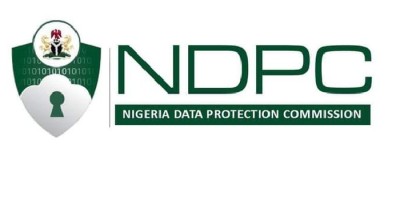- Home
- Grey Matter
- Central Bank Of Nigeria Automates Nigerian Export Proceeds Form (“Form NXP”) For Commercial Exports
Central Bank Of Nigeria Automates Nigerian Export Proceeds Form (“Form NXP”) For Commercial Exports
Posted on Sun 3 Nov 2019
- Download Resource
On Monday, October 28, 2019, the Central Bank of Nigeria (“CBN”), pursuant to powers conferred on it by the Foreign Exchange (Monitoring & Miscellaneous Provisions) Act, 1995 to issue guidelines regulating export and import trade transactions in collaboration with relevant governmental entities, issued a circular tagged “Automation of Form “NXP” on the Trade Monitoring System (“TRMS”) (the “Automation Circular”).
As provided in the CBN’s Revised Foreign Exchange Manual, 2018 (the “Revised FX Manual”), any person intending to export any product from Nigeria shall, in the first instance, process the Nigerian Export Proceeds Form (generally known as “Form NXP”) through an Authorized Dealer Bank, irrespective of the value and whether or not payment is involved. Form NXP is used for commercial exports.

Overview of the provisions of the Automation Circular
Pursuant to the Automation Circular, with effect from Thursday, October 31, 2019, e-Form ‘NXP’ has replaced the hard copy Form NXP hitherto used for processing commercial exports (including oil & gas and non-oil & gas exports) from Nigeria. As from that commencement date of the automation process, a fee in the sum of Five Thousand Naira (N5,000.00) shall be charged per declaration for e-Form ‘NXP’.
Henceforth, as stated in the Automation Circular, all Authorized Dealers are required to ensure that:
-
Form ‘NXP’ for commercial exports are only processed electronically on the CBN’s TRMS;
-
Every export-customer obtains a valid Tax Identification Number (“TIN”) from the Federal Inland Revenue Service /Joint Tax Board, as the TIN shall constitute a condition for access to the TRMS;
-
Adequate web-based system is put in place in order to allow exporters to initiate and generate the e-Form ‘NXP’ from the comfort of their various locations;
-
A direct debit mandate is emplaced whereby the fee charged for each declaration for e-Form ‘NXP’ will be debited first to the relevant Authorized Dealer’s current account before the charge is subsequently recovered by the Authorized Dealer from the export-customer; and
-
Charges imposed on export-customers in relation to the e-Form ‘NXP’ are separated from other charges levied by the Authorized Dealer.
Transitional Matters
The Automation Circular provides for a 90-day transition period within which all hard copy Forms NXP, established prior to the commencement of the automated system (that is, on or before October 30, 2019), must be utilized. Thus, from October 31, 2019, all existing hard copy Forms ‘NXP’ are required to be utilized within 90 days of their establishment, failing which they will be deemed to have been cancelled.
Commentary
We note that the 90-day transition period aligns with the number of days within which an expired Form NXP can be extended, in the first instance, under Memorandum 10 of the Revised FX Manual. However, the only difference is that, after the transition period, such extension will no longer be granted in respect of any unutilized hard copy Form NXP.
With the establishment of the automation process, inter-agency inspection and regulation required in export processing arrangements are expected to become a lot more seamless and the length of time required to process export documents substantially reduced because the TRMS, as a digital platform, provides all the agencies and intermediaries involved online real-time access to uploaded documents, such as the e-Form ‘NXP’.
Depending on the nature of goods being processed for export from Nigeria, the agencies and intermediaries involved in the process include the CBN, Authorized Dealer Banks, Nigeria Customs Service, Pre-shipment Inspection Agents, Shipping Lines & Airlines, National Agency for Food and Drug Administration and Control (“NAFDAC”), Standard Organization of Nigeria, Department of Petroleum Resources, Nigerian Port Authority, National Bureau of Statistics and the Nigerian Export Promotion Council.
The TRMS was developed and is being deployed to facilitate automation of all foreign exchange forms in Nigeria, which include Form ‘M’ (for Imports); Form ‘NXP’; Form ‘NCX’ (for Non-Commercial exports); and Form ‘A’ (for Invisible Trades). Please recall that, in a coordinated regulatory action undertaken by NAFDAC and CBN (apparently in furtherance of the objectives of the TRMS), all e-permits/licenses/notices issued by NAFDAC in respect of NAFDAC-regulated products were, in September 2019, integrated with the CBN’s e-Form ‘M’ on the Nigeria Single Window Trade Portal.
Obviously, automation of Form ‘M’ and (now) Form ‘NXP’ will enhance the country’s rate of Trading Across Borders – one of the reform initiatives of the Presidential Enabling Business Environment Council (PEBEC) being implemented by the Enabling Business Environment Secretariat (EBES) through the various National Action Plans on the Ease of Doing Business in Nigeria.
Going forward, exporters are advised to take immediate steps towards complying with the new regime of e-Form ‘NXP’ while also ensuring that hard copy Forms NXP already established are utilized within the 90-day transition period.
The Grey Matter Concept is an initiative of the law firm, Banwo & Ighodalo
DISCLAIMER: This article is only intended to provide general information on the subject matter and does not by itself create a client/attorney relationship between readers and our Law Firm or serve as legal advice. Specialist legal advice should be sought about the readers’ specific circumstances when they arise.













